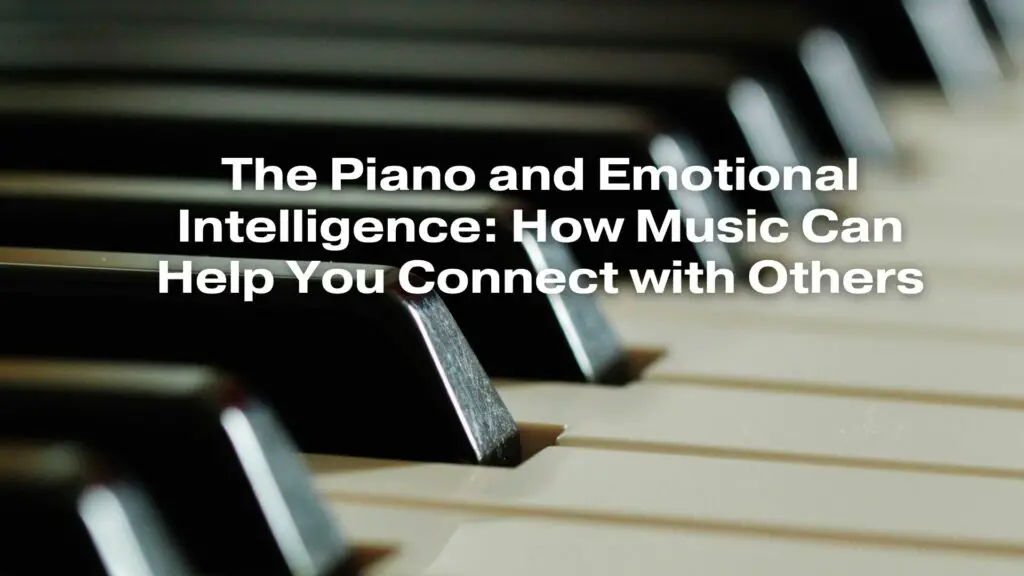The piano, with its capacity to convey a wide range of emotions, can play a profound role in developing and enhancing emotional intelligence. Emotional intelligence is the ability to recognize, understand, manage, and effectively use emotions in social interactions. In this article, we’ll explore how the piano and music can aid in connecting with others on an emotional level and bolstering your emotional intelligence.
1. Expressing Emotions:
- Playing the piano enables individuals to express a wide spectrum of emotions through music. This act of emotional expression can serve as a model for recognizing and managing emotions in oneself and others.
2. Empathy Development:
- Music often evokes empathy and shared emotions. By playing and listening to piano music, individuals can develop a greater capacity for empathizing with others’ feelings and experiences.
3. Recognizing Emotional Nuances:
- Piano music is rich in emotional nuances. By engaging with these nuances in music, individuals can become more attuned to subtleties in others’ emotional expressions.
4. Active Listening:
- Playing the piano promotes active listening. Active listening is a key component of emotional intelligence as it involves being fully present and engaged in a conversation, which fosters better understanding.
5. Social Interaction:
- Music, including piano performances, often occurs in social settings. These interactions can enhance interpersonal skills and emotional awareness.
6. Self-Regulation:
- Playing the piano can be emotionally cathartic. It teaches individuals self-regulation by providing a constructive outlet for managing and expressing strong emotions.
7. Mood Management:
- Piano music can be used to regulate the mood of a room or environment. Understanding how music influences moods is a valuable skill in managing social dynamics.
8. Creative Communication:
- Composing and improvising on the piano can be a form of creative communication. It allows individuals to express emotions and thoughts when words are inadequate.
9. Stress Reduction:
- Music, including piano playing, is known for its stress-reduction benefits. Reduced stress levels are linked to better emotional intelligence and more effective social interactions.
10. Personal Growth: – Engaging with the piano and music can lead to personal growth, which often involves increased emotional intelligence and a deeper connection with one’s own emotions and those of others.
11. Cross-Cultural Understanding: – Music transcends cultural and language barriers. By engaging with music from various cultures on the piano, individuals can promote cross-cultural understanding and empathy.
12. Collaborative Experiences: – Collaborating with other musicians in ensemble performances or group settings enhances teamwork, communication, and interpersonal skills, all of which contribute to emotional intelligence.
In conclusion, the piano and music offer a unique pathway to developing emotional intelligence and connecting with others on a deeper emotional level. Through emotional expression, empathetic development, active listening, and creative communication, individuals can enhance their ability to recognize and manage emotions, not only in themselves but also in the people around them. The piano serves as a powerful tool for fostering emotional intelligence and nurturing more meaningful and authentic connections with others.


